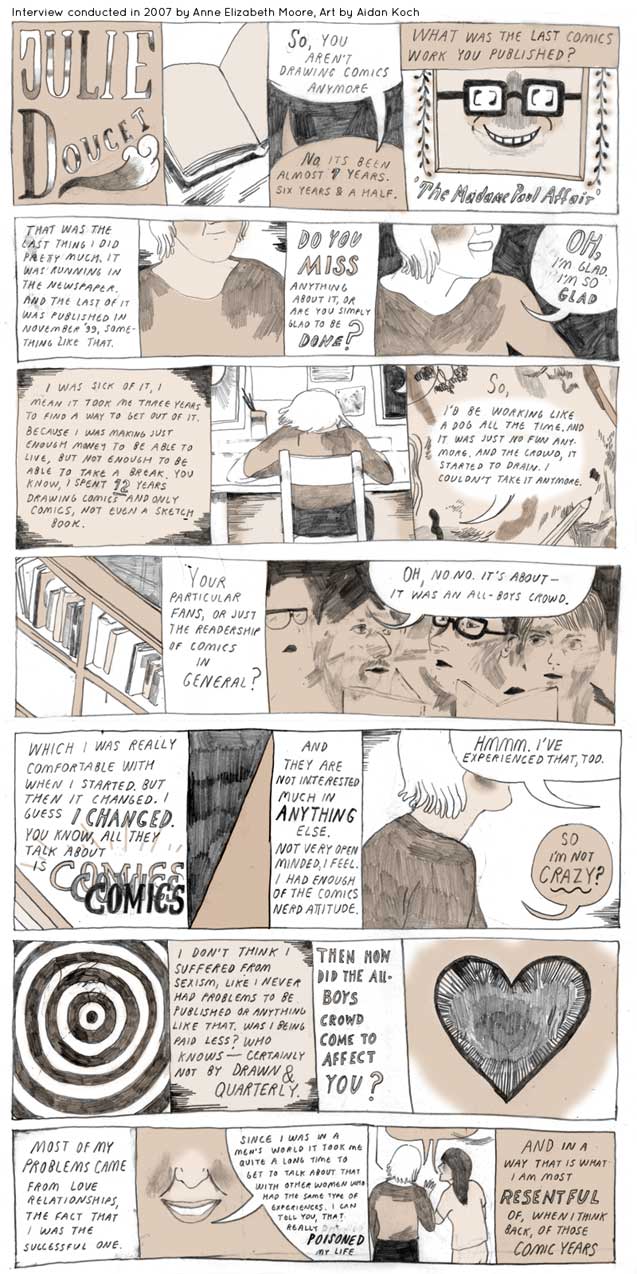
Part of the Series
Ladydrawers
Last week in Ladydrawers, we talked to established and celebrated Alison Bechdel about challenges she faces in the comics industry. But what about the creators that find those challenges insurmountable?
One of the most celebrated (and beloved) female comics artists in North America is Julie Doucet, who stopped making comics somewhere around the turn of the century. In 2007, Drawn and Quarterly re-released a collection of her dream stories, “My Most Secret Desire,” and Anne Elizabeth Moore took the occasion to talk about her experiences in the industry she’d abandoned, despite being one of the few women artists to achieve such acclaim. Her intimate story paints a disturbing portrait of how structural inequities can affect individual creators.
Aidan Koch is an artist currently working out of Portland, Oregon. Her first graphic novella, “The Whale” was released in October 2010. She is currently scheming up new books, playing music nonstop and setting forth for wild adventures. Visit her web site at: www.aidankoch.com
To see past Ladydrawers comics, click here.
Click here or on the comic below to open it in a new window and click again to zoom in.
A terrifying moment. We appeal for your support.
In the last weeks, we have witnessed an authoritarian assault on communities in Minnesota and across the nation.
The need for truthful, grassroots reporting is urgent at this cataclysmic historical moment. Yet, Trump-aligned billionaires and other allies have taken over many legacy media outlets — the culmination of a decades-long campaign to place control of the narrative into the hands of the political right.
We refuse to let Trump’s blatant propaganda machine go unchecked. Untethered to corporate ownership or advertisers, Truthout remains fearless in our reporting and our determination to use journalism as a tool for justice.
But we need your help just to fund our basic expenses. Over 80 percent of Truthout’s funding comes from small individual donations from our community of readers, and over a third of our total budget is supported by recurring monthly donors.
Truthout has launched a fundraiser to add 310 new monthly donors in the next 4 days. Whether you can make a small monthly donation or a larger one-time gift, Truthout only works with your support.